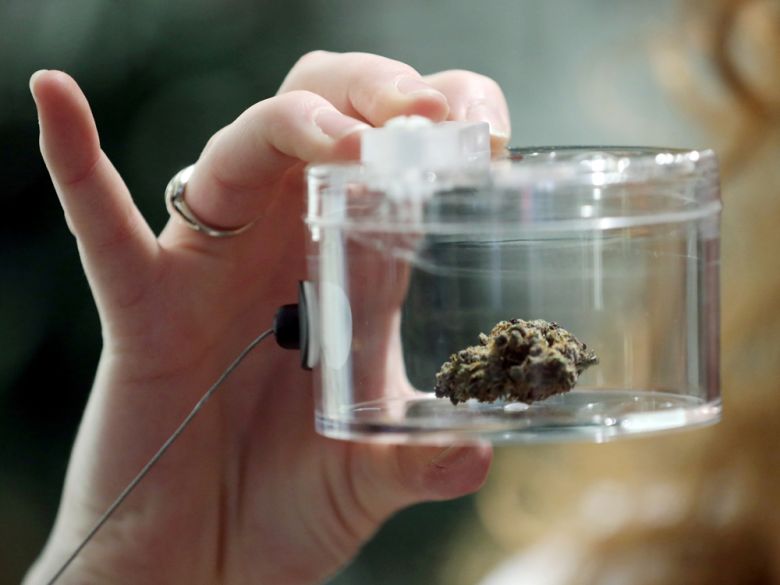You are here
Home 🌿 Recreational Marijuana News 🌿 Ontario's slow rollout of weed stores could help the black market thrive for longer 🌿Ontario's slow rollout of weed stores could help the black market thrive for longer

Ontario has blamed a shortage of legal cannabis from the federal government for its slow rollout of retail outlets, a claim dismissed by the federal government and regulatory bodies from other provinces, raising prospects the black market for weed may thrive longer in Canada’s most populous province.
Canada became the first G7 country to legalize recreational marijuana in October 2018 but sales have been dampened by supply constraints and prices that are higher than those on the black market.
While the provinces can set their own cannabis guidelines, a provincially run distributor purchases the cannabis from federally licensed producers, and then allocates it to retail locations approved by the province.
Ontario said last week that bottleneck on the federal government’s side is the reason the province will release only 50 cannabis licenses later this summer.
“We urge the federal government to take steps to quickly increase the supply of recreational cannabis so that we can continue combating the illegal market in Ontario,” Marc Pichette, spokesman for the Ontario Ministry of Finance, said in an email.
But the federal government has pushed back on this assertion, as have industry analysts and regulatory bodies in other provinces.
“With the notable exception of Ontario, the rest of the country has made steady progress in displacing the illicit market with licensed and regulated retail stores,” Bill Blair, federal minister for border protection and organized crime reduction, said in a statement.
Blair’s office is one of the departments in charge of cannabis legalization in Canada.
Black market
The most recent government data available from April 2019 states that 8,853 kilograms of cannabis products were sold in Canada, which has a population of 37 million. The national inventory of cannabis ready to be shipped and sold was 31,880 kilograms.
By comparison, Oregon, a U.S. state of 4 million people, announced in 2018 a stockpile of 435,000 kilograms of cannabis, causing prices and profits to drop.
Jay Rosenthal, co-founder and president of the research company Business of Cannabis, said Ontario’s slow retail start leaves room for illegal weed sales.
“The black market is really effective at filling gaps,” Rosenthal said.
A major gap he sees is retail. Ontario has just one legal retail cannabis store per 200,000 people, compared with Alberta’s one store for every 28,000 people.
A possible reason for this, Rosenthal thinks, is the “dramatic shift from one government to the next” that occurred in Ontario in the lead-up to legalization.
The province had initially intended to open government-run cannabis stores, similar to how liquor is sold in the province, but a change of government that came into effect just a few months before legalization opted instead for privately owned businesses.
In the aftermath of this short-notice policy switch, Rosenthal said, “The supply shortage is an easy scapegoat.”
Nick Kuzyk, chief strategist officer for High Tide , which currently owns or has partnerships with eight operational retail stores across Canada, also is concerned about the black market in Ontario.
But overall he and other retailers Reuters spoke to are happy with how the Ontario government has handled legalization so far, including the latest lottery of 50 licenses.
“I think the government has looked at the data and chosen the number accordingly,” Kuzyk said. “They could have chosen 100 or 150 but they chose 50.”
420 Intel is Your Source for Marijuana News
420 Intel Canada is your leading news source for the Canadian cannabis industry. Get the latest updates on Canadian cannabis stocks and developments on how Canada continues to be a major player in the worldwide recreational and medical cannabis industry.
420 Intel Canada is the Canadian Industry news outlet that will keep you updated on how these Canadian developments in recreational and medical marijuana will impact the country and the world. Our commitment is to bring you the most important cannabis news stories from across Canada every day of the week.
Marijuana industry news is a constant endeavor with new developments each day. For marijuana news across the True North, 420 Intel Canada promises to bring you quality, Canadian, cannabis industry news.
You can get 420 Intel news delivered directly to your inbox by signing up for our daily marijuana news, ensuring you’re always kept up to date on the ever-changing cannabis industry. To stay even better informed about marijuana legalization news follow us on Twitter, Facebook and LinkedIn.




